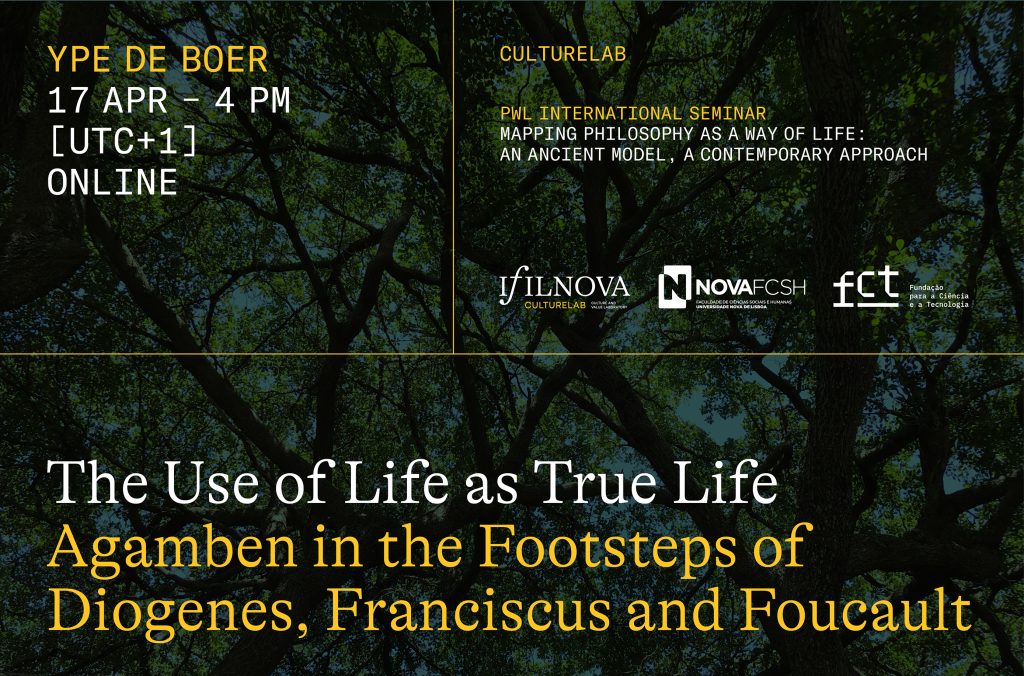Ype de Boer
“The Use of Life as True Life. Agamben in the Footsteps of Diogenes, Franciscus and Foucault”
April, 17 | 16h00 (UTC+1)
11h00 New York | 12h00 Brasília | 16h00 Lisbon | 17h00 Berlin | Other locations

Abstract
Agamben’s radical and controversial diagnoses of the western tradition of thought and praxis have given rise to a reception of his work as fundamentally pessimistic or even nihilistic. In recent years, however, a growing body of literature has pointed out his consistent though often elliptic reference to a ‘vita felice’. Even in his recent unrestrained charges on the global (especially the Italian) coronameasures – which gave new life to his image as a dark prophet – Agamben ultimately aims at formulating an alternative conception of life and a new notion of ethics, politics and ontology that constitute precisely the ‘way out’ of nihilism. Sometimes termed form-of-life, messianic life, profane life or simply ethical life, Agamben’s philosophy persistently aims for a happy life. However, although the ethico-political engagement of his thought is now generally accepted, no such accord exists regarding the nature of his alternative concept of life, the ethics or politics belonging to it and how they are to be evaluated. In this talk I propose to read Agamben’s idea of happy life along the lines of what Foucault in his lectures on the cynics termed a ‘true life’. I show how the themes of exemplarity, animality/naturality, and that of ‘changing the coin’ are essential to Agamben’s construction of the Franciscan way of life as a paradigm for happy life. Taking into consideration his ‘theory of use,’ I conclude by sketching Agamben’s own understanding of a true life, and in what important ways it both coalesces with and diverges from Cynic and Franciscan life.
Bio
Ype de Boer is a lecturer at the Radboud University Nijmegen at the department Metaphysics and Philosophical Anthropology. His research focuses on the relation between ontology, ethics and imagination. In what way do perceptions and conceptions of reality translate to ethical attunements? What is the role of the imagination in our understanding of reality? Such questions guided his PhD-research on the notion of ‘happy life’ (vita felice) in the work of Italian philosopher Giorgio Agamben, as well as his books in Dutch: Murakami en het gespleten leven (Murakami and the Ethics of the Split), a philosophical exploration of the fiction of Japanese author Haruki Murakami and Het erotisch experiment. Voorbij de moderne seksuele identiteit (The Erotic Experiment. Beyond Modern Sexual Identity), which combines a Foucault- and Frankfurther Schule inspired critique of the value and role of sex in modern society with a philosophical experiment concerning the Idea of the erotic.
Registration required via email to mapping.pwl@gmail.com
